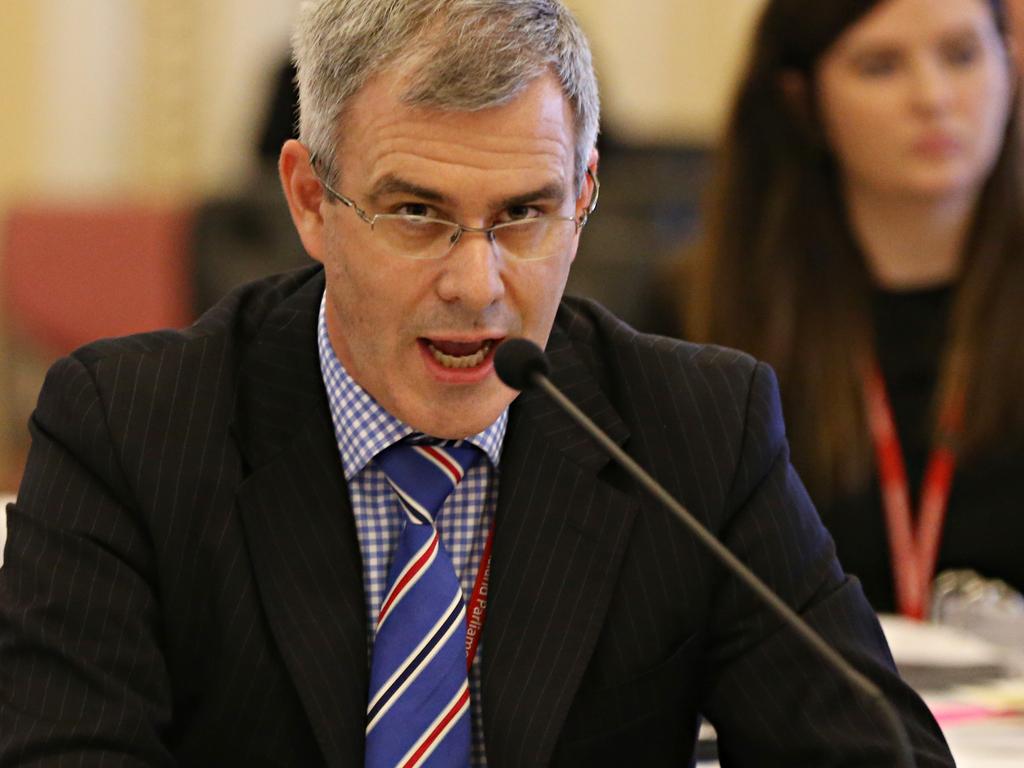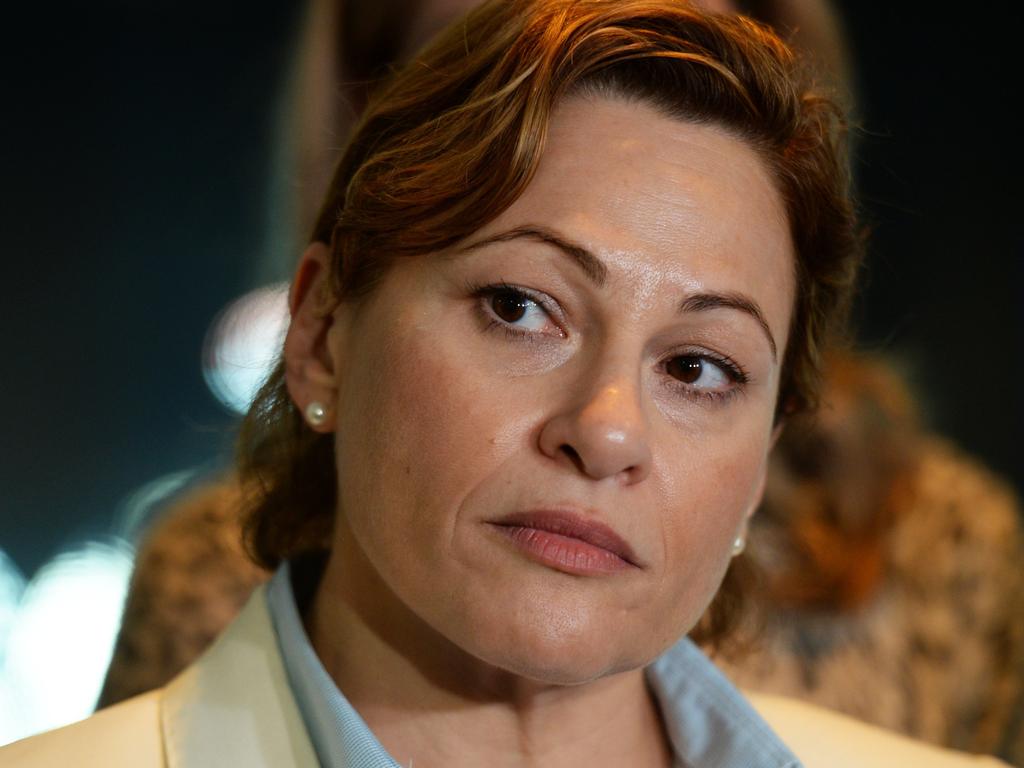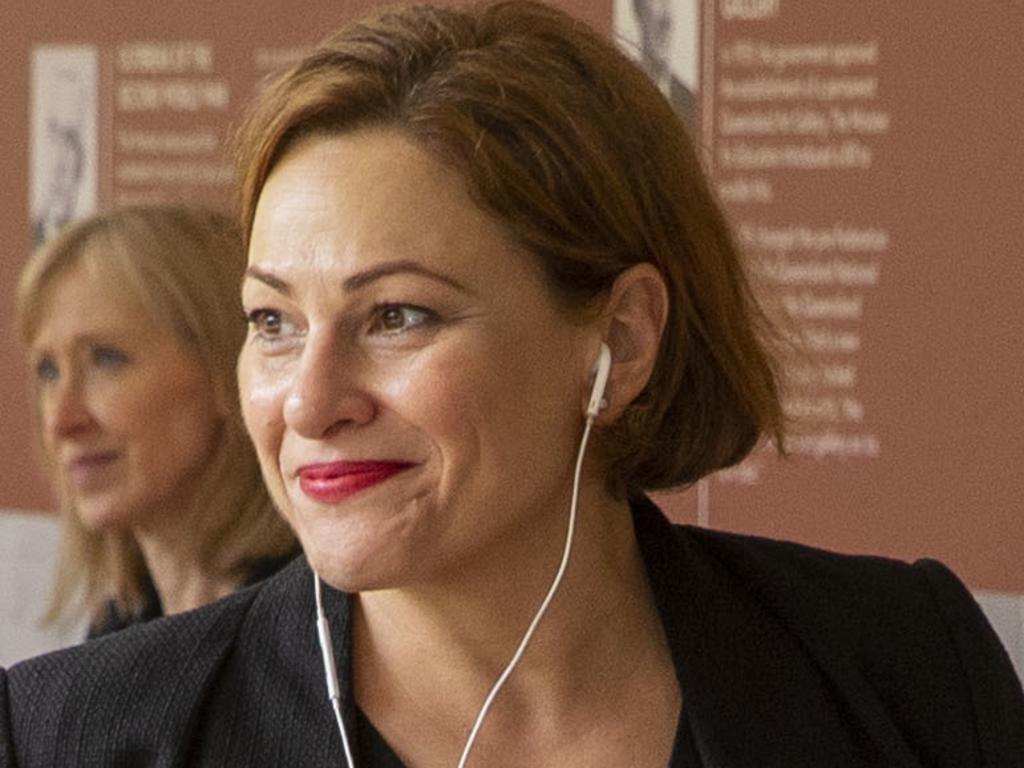Hidden risks in Jackie Trad debt-reduction plan
Jackie Trad’s debt-reduction plan carries a 50 per cent risk it will drive the public service defined benefit super scheme into deficit.

Queensland Treasurer Jackie Trad’s debt-reduction plan carries a 50 per cent risk it will drive the state’s $90bn public service defined benefit superannuation scheme into deficit, potentially forcing the government to raid the budget to top it up.
Ms Trad last month revealed she would establish a Queensland future fund to help pay down the state’s soaring debt — forecast to hit $91.79bn by 2022-23 — by taking $5bn from the surplus of the bureaucrats’ defined benefit superannuation fund.
The money would be used to create a new debt offset account to be invested by the Queensland Investment Corporation.
But independent advice from State Actuary Wayne Cannon has revealed the risks of Ms Trad’s policy to the state’s $90bn public service defined benefit scheme, the only fund of its kind in the nation to be fully funded.
Ms Trad’s $5bn future fund will be made up of $3bn from the current defined benefit fund surplus of $7.4bn and $2bn that former treasurer Curtis Pitt promised to take to pay down debt in the 2016 budget, but which was never used.
Mr Cannon’s actuarial investigation — prepared before Ms Trad’s policy was announced — predicts that if an additional $3bn is repatriated there is a 53 per cent chance the defined benefit fund will fall into deficit in 2023. If $5.2bn is taken, the risk rises to 72 per cent.
The calculations are based on a “stochastic” or random variation in forecast investment and inflation outcomes.
The actuary’s report also contains another scenario — based on fixed assumptions such as public service salary growth being limited to 2.5 per cent per annum and long-term investment returns of 3.75 per cent per annum — in which $3bn can be taken and the fund does not fall into deficit.
Even if the fund slips into deficit, the superannuation payouts of the scheme’s 68,000 public servant members will not be affected because they are guaranteed.
That means the government is required under legislation to fully fund the scheme, so would have to top it up.
Former federal Treasury economist Gene Tunny, director of Adept Economics, said the State Actuary’s report revealed Ms Trad’s debt-reduction policy was “risky,” and could force the government to dip into other areas of the budget to top up the defined benefit fund if it slipped into deficit.
“I don’t want to catastrophise about it, and I don’t want to say this is terrible fiscal policy, but it is risky, and it’s not really prudent,” Mr Tunny said.
“The actuary’s report underlines there are legitimate questions about whether this (debt policy) is an economic solution, rather than a political solution.
“The government wants to say it has an answer to the debt question. But if I were reading that (actuary’s) report I’d say they should have repatriated a lower amount.
“Given they’re at an over 50 per cent risk of falling below 100 per cent fully funded, that’s a real concern.”
But a Queensland government spokesman said no other state or territory had a fully funded defined benefit superannuation liability.
He said NSW’s scheme was to remain less than fully funded for another decade and the federal government’s unfunded superannuation liability was to increase to $233bn late last year.
“The Palaszczuk government’s $5bn Queensland future fund will put surplus funds to work for all Queenslanders to pay down debt, while also guaranteeing through legislation that the Queensland government keeps the defined benefit superannuation liability 100 per cent funded,” the spokesman said.
“The actuarial report projects that, even after setting up the proposed Queensland future fund, the defined benefit scheme will remain more than 100 per cent fully funded.”
Liberal National Party opposition deputy leader Tim Mander said the actuary’s independent advice showed Ms Trad’s “raid on public service superannuation was reckless”.
“Labor has put at risk the ability of Queensland to fully fund the superannuation entitlements of hardworking public servants. Increasing taxes, escalating debt, and yet another raid on superannuation shows Labor can’t manage the state’s finances,” Mr Mander said.
Mr Cannon said it was up to the government what, if any, further repatriations were made from the defined benefit surplus, and so he would not make a recommendation about how much should be taken.
“I emphasise that there is no single ‘correct’ level of surplus for any defined benefit scheme and that no guarantee can be provided as to future funding levels due to the variability of scheme outcomes, particularly investment returns,” he said.








To join the conversation, please log in. Don't have an account? Register
Join the conversation, you are commenting as Logout